The Steps Involved in FIBC Bags Manufacturing Process
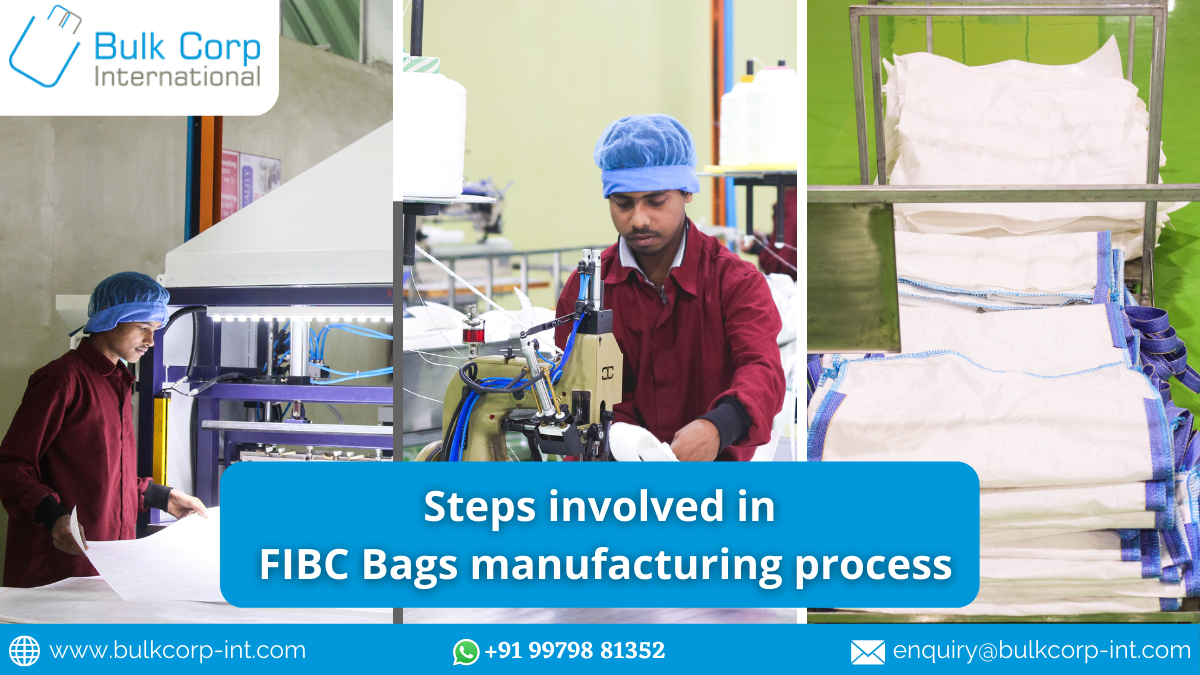
Jumbo Bags Manufacturers in India employ a series of steps in the manufacturing of the perfect FIBC Bag. Regardless of the shape or cost-effectiveness, the bags made by reputed manufacturers undergo thorough testing for quality control.
The following are the various stages of manufacturing of FIBC Bags.
Extrusion
In the beginning, a mix of Raw Materials is extruded into tapes of denier & width. During this stage, the tensile strength of the tapes is checked. The tapes are then loaded and prepared for weaving.
Weaving
After the tapes are placed on the weaving looms, the tapes are interwoven to produce the fabric. Once woven into the shape it is strong enough to carry goods but it does contain minute holes that allow the passage of moisture through the material. The Quality team checks and approves the mechanical properties, appearance of the fabric.
Moisture Proofing
As an optional step—depending on the requirement of the customer—a special coating is applied to the bag which makes them moisture-proof. Such moisture-resistant bags can be used to store and transport products that are not supposed to be exposed to moisture. Jumbo Bags for Agricultural Products are usually made using this special coating.
Cutting
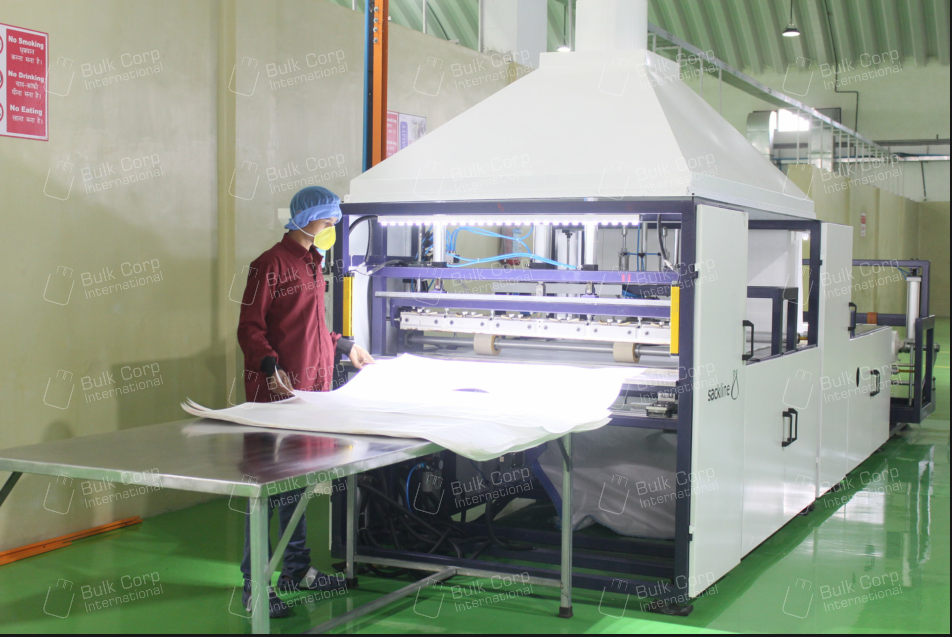
At this stage, the fabric is cut into specific shapes of which the measurements are determined automatically. This ensures that the lengths of each cut are equal and exact according to the given measurements. The cuts determine the actual shape of the bag; whether square, tubular, or vertically rectangular.
Printing
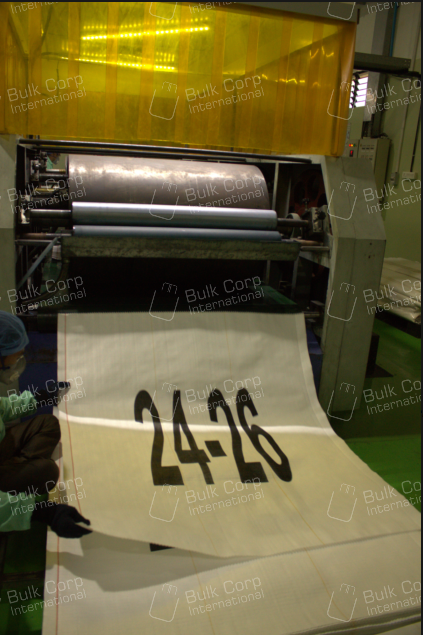
After the fabric is cut, it is sent to the printing machine. It is here that the impressions, company logo, and colors are applied to the bags.
Webbing
During this stage, the handles of the bulk bags are made. The PP tapes woven on flat looms in warp direction & Multifilament Yarn is woven in the weft direction, to produce the webbing. It’s also possible to produce Multifilament Webbing in which the Warp is also Multifilament Yarn. This product forms the handles of the FIBC bags. The Quality team checks and approves the mechanical properties, appearance of the fabric.
Sewing
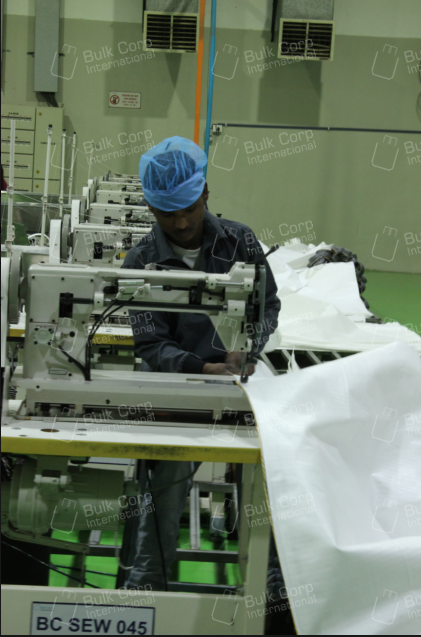
Each FIBC is unique in design. Based upon the attachments/ components the line plan is setup. Different operations are carried out at the work stations setup where assembly of the fabric, webbing is done by trained workers to produce the final FIBC bag.
Inspection

After the sewing process is completed, each FIBC bag is inspected by a qualified QC inspector. This is a vital step for ensuring that the bags have no defect and are fit to be used by the client.
Load Test
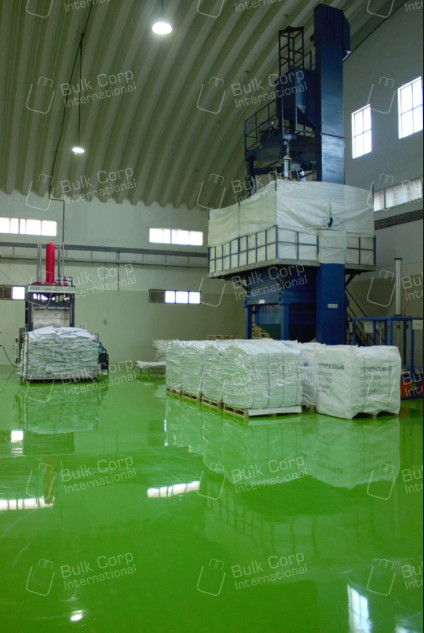
This test is performed to ascertain whether or not the bulk bags are meeting the Safe Working Load limit. This tests the strength of the bags. The Burst Test is performed on 1 bag per order, to ensure that they meet the SWL.
Packing & Dispatch
Once the bulk bags are produced they are folded neatly and then compressed in a Bale Press machine. This helps to reduce the volume of the final bale which is then kept on a wooden pallet and dispatched to the client in 20/ 40ft containers.
As one of the top FIBC Manufacturers in India, Bulk Corp International follows a rigorous production and testing process that ensures only the bags that meet their quality benchmarks leave the factory doors. For more information or to receive quotes for your specific FIBC needs, contact us today!
You may also like to read :
Top Reasons to Use Ventilated Bags for Agricultural Products





